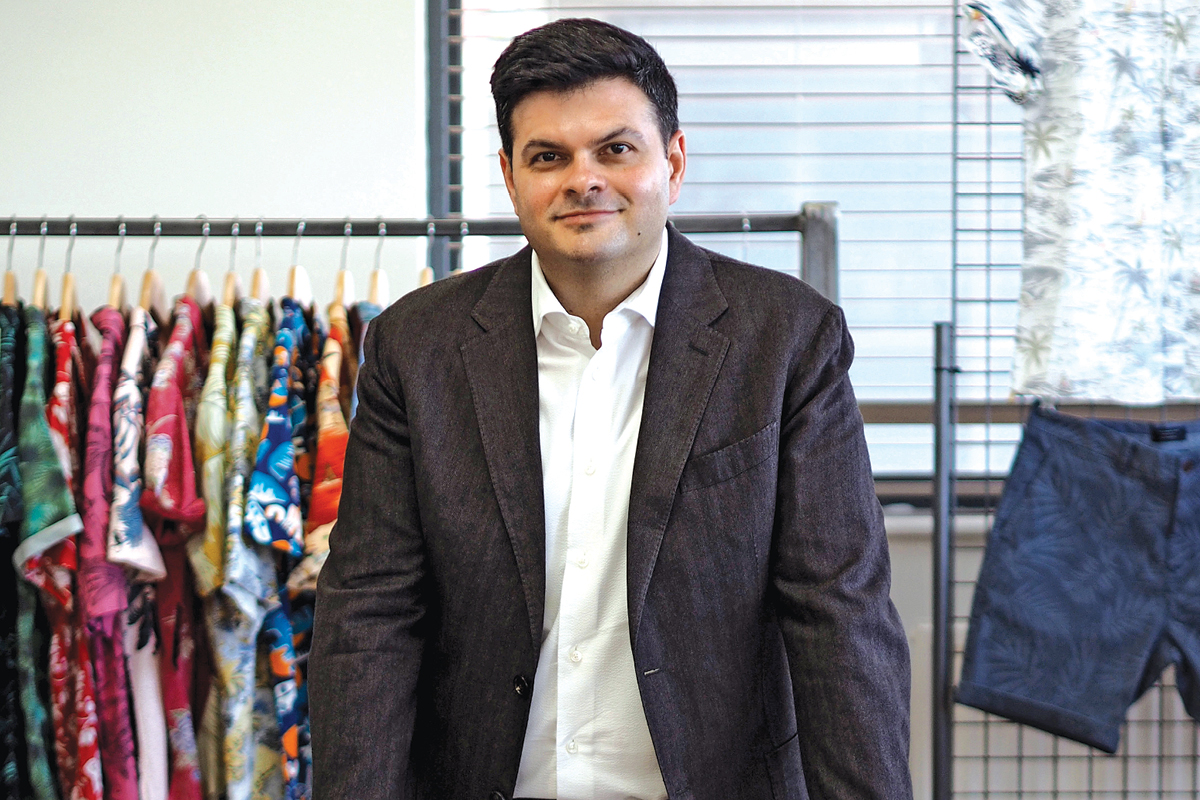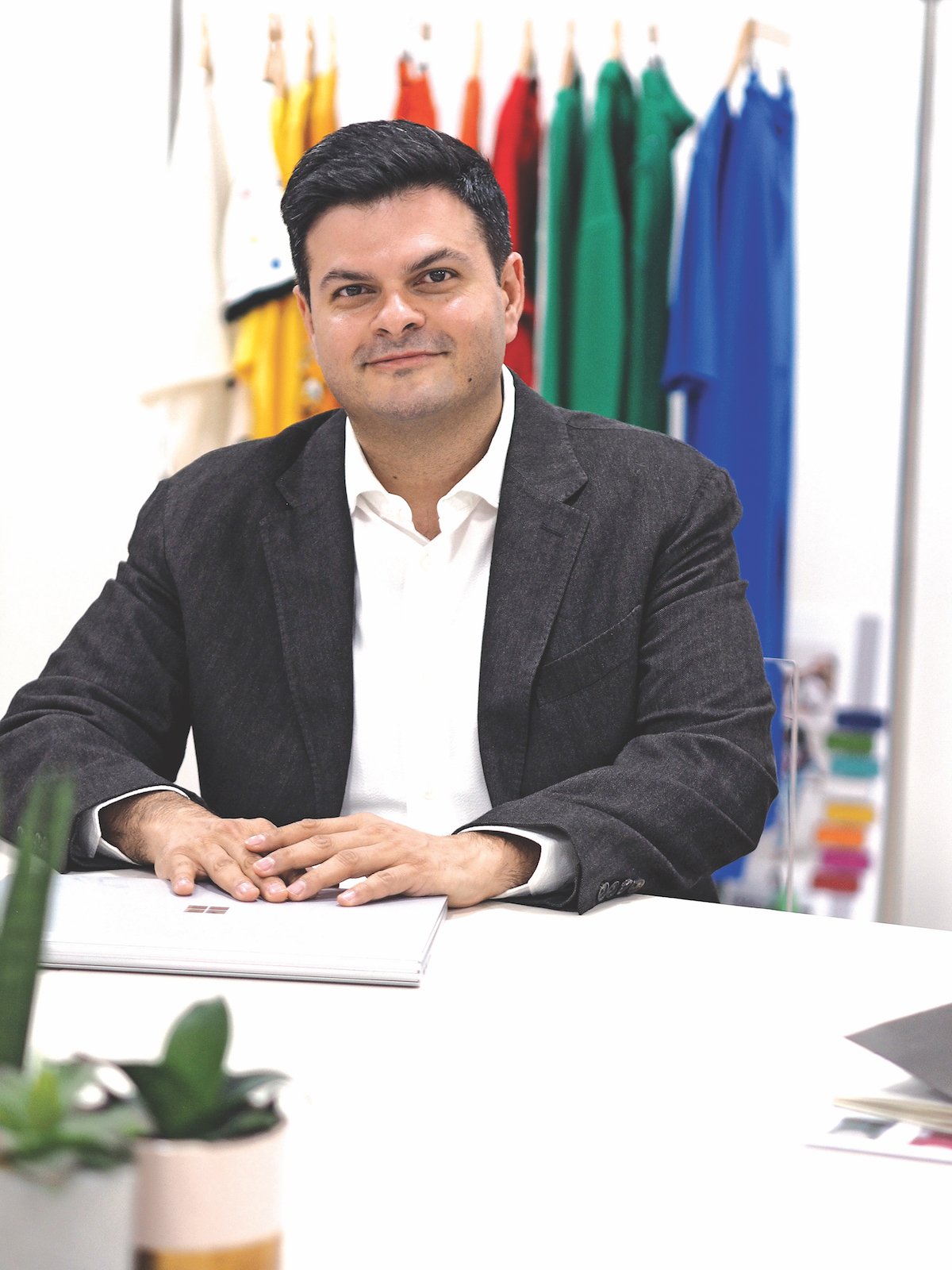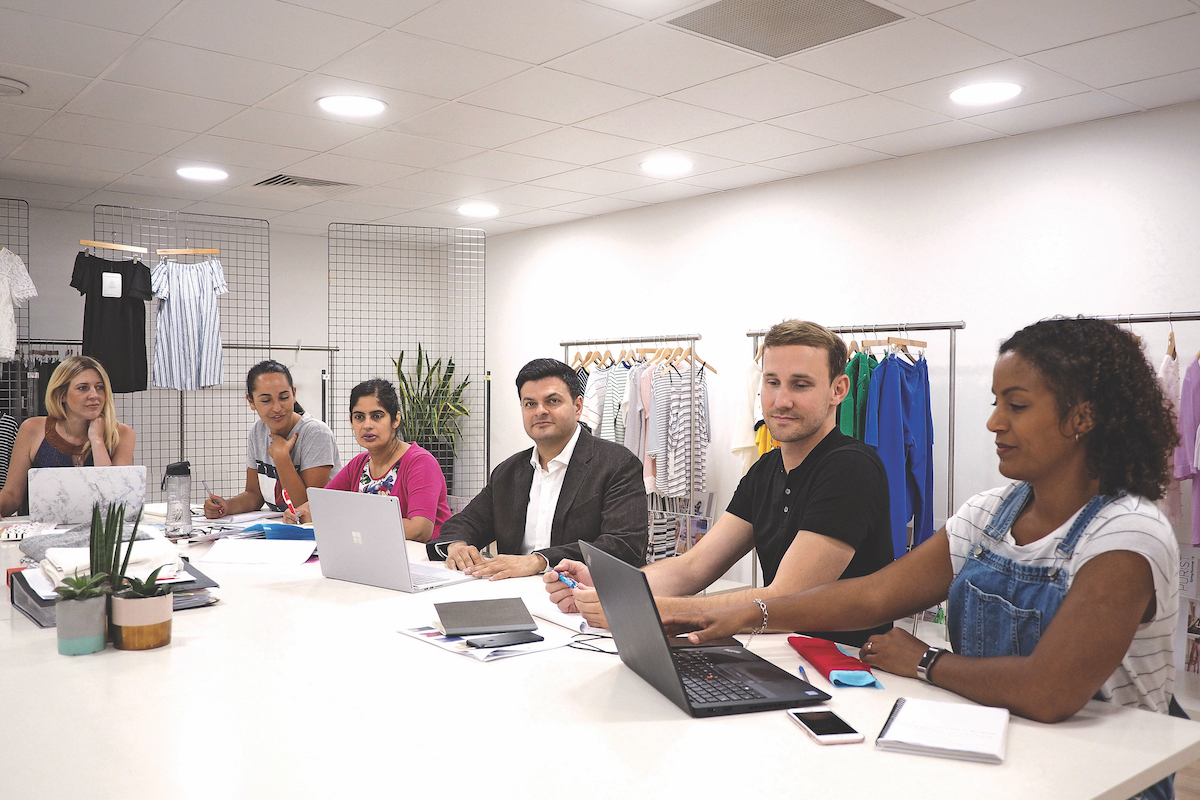After graduating with a Bachelor of Arts (Economics) from Northwestern University in Chicago, Pallak Seth moved to Hong Kong, at the age of 21, and started an apparel sourcing business with US$200,000 in initial capital from his family. Established in 1999, Norwest Industries made US$1 million in profit in its first year. Twenty years later, it is a US$1.2 billion business and the flagship company of PDS Multinational Fashions. And Pallak now serves as the CEO and Vice Chairman.
“Instead of remaining as an apparel sourcing company,” Pallak tells The CEO Magazine, “we are today a platform business.” In place of acquiring businesses, which the company lacked the funds to do, it started establishing subsidiaries; these days, a CEO runs each of the 50 subsidiaries that operate under the PDS umbrella. Pallak very quickly learned that in the supply chain industry, “the key to success is a CEO’s relationship with their clients and suppliers”. Pallak clearly values these relationships, and the company’s willingness to invest in its suppliers is a testament to its dedication to symbiotic growth.

In response to an evolving industry, one in which retailers are increasingly choosing to work directly with manufacturing groups rather than deal with intermediary sourcing companies, PDS made the decision to build its own factories. It now has two facilities in Bangladesh, one in Sri Lanka and one in India. It has invested US$65 million in manufacturing to help reach US$200 million in revenue by 2021 when all factories are operating at full capacity.
Pallak describes the decision as one made to “meet the evolving expectations of the client and invest in the future by adding manufacturing as another business arm, to work alongside the established design-led sourcing business”.There is a twofold aim at play here, he says, and the intention is “to evolve with existing clients, and attract customers who only work with pure play manufacturing companies”.
“PDS is no longer just a sourcing company, but a manufacturing one as well.”
PDS has 200 partner factories, and delivers roughly one million units a day to almost 200 retail customers. With operations continually expanding, there are certain aspects of the company that will demand more attention in the coming years, particularly considering its dedication to taking advantage of every opportunity it identifies. “To prevent lost opportunities,” Pallak says, “we are determined to foster collaboration between our various business heads. Focusing on the digitisation of our business will allow us to have everything on a common platform, and we are also seeking to improve our customer retention levels.”

Success of PDS
The success of PDS is driven in large by those responsible for its management, and there is a heavy focus on attracting talented individuals to these positions. “We are continually starting two or three new businesses a year. This is not organic growth but, at the same time, we are not acquiring new companies. For any business that we scale over US$50 million, we hire young executive assistants from top universities to develop the talent pool internally,” he says.
PDS expects its investment in talent to yield dividends, and, just like it nurtures its talent, the company devotes much of its energy and resources to ensure fruitful and productive relationships with its suppliers. Today, PDS helps its suppliers by providing financial assistance, especially when banks are shifting their attention away from the apparel and retail sector. Suppliers use this help for upgrading facilities to meet compliance related health and safety norms, and for the purchase of raw materials and technology upgrades for automation to achieve higher efficiency.
There is growing attention being paid to compliance, a trend that Pallak has noticed emerging over the past five years, particularly in ethical and social terms. So, once vendors are determined to be financially stable, PDS lends money to improve their facilities. The technical and ethical compliance team then work in tandem with the vendors until they are running efficiently, in line with regional regulations, and upskilling them in terms of ethical expertise. “Many of our vendors start from a relatively low base but, over two to three years, they become some of the most compliant and sought-after factories in Asia, because of our help,” he says.
PDS offers this kind of aid with the larger aim of creating a supply chain system that leads to an overall boost in working and living conditions for factory employees, and is committed to stamping out unethical practices and non-compliance through its zero-tolerance policy. The company’s willingness to invest in its suppliers gives it a competitive edge, and is helped by its debt-free status.

The uncertain future
With many retailers and suppliers currently facing an uncertain future due to high levels of debt, and many companies going out of business, PDS is poised to take advantage of the increased opportunities on offer as a result of the reduced competition. Surviving retailers are consolidating their supply base, and “we are benefiting from that because of our financial strength and global reach”.
As a result, PDS is seeing 15–20% growth on a year-on-year basis, and the PDS board has internally set a target to reach US$2 billion in sales by 2023. This will make it among the largest apparel sourcing and manufacturing groups in the world. The company’s growth is being overseen in alignment with the goal of supplying goods to customers “at the fastest possible time and the lowest possible cost”.
The PDS business model is unique in the apparel supply chain business: showing remarkable growth without acquiring a single company. Pallak notes that it can attract the best and the brightest in the industry to join and set-up companies in partnership. Touching again on the importance of nurturing talent internally, as well as the relationships with suppliers, Pallak acknowledges that “people drive the business”.
“In our industry, people drive the business.”
Ecommerce and consolidation, based on increasing costs in the US and Europe, have led to huge disruptions in the industry’s customer base. But PDS can go forward knowing it can offer customers market intelligence, consolidation power and more. Pallak is proud of its evolution “from a global sourcing business to a global manufacturing business built on a stable foundation of financial help, compliance and sustainability”, with this last aspect particularly pertinent, given that it is one of the most pressing issues facing fashion retailers and suppliers.
“After the oil and gas industry,” Pallak says, “the fashion industry is one of the largest polluters in the world. Clothes made of polyester that go into landfill are damaging the environment just like plastic.” So, fashion manufacturers around the world are now facing a call to action, with a commitment to sustainable practices rapidly becoming non-negotiable. Pallak sums it up perfectly: “The past five years in the industry were about compliance; the next five will be about sustainability and the circular economy in fashion.”


